Every homeowner needs to think well about the particular materials that they use for each part of their house. When it comes to the outdoor patio, would it be wise to use epoxy flooring? If this is your concern, we've done the research for you, and here's what you need to know.
Yes, you can use epoxy flooring for your outdoor patio. This flooring material is versatile, durable, safe to use, and can add to the overall look of your patio with its different colors, designs, and styles.
Keep on reading to find out more about epoxy flooring and the advantages and disadvantages of using epoxy floors. We'll also answer how long epoxy floors last. Let's get to it!
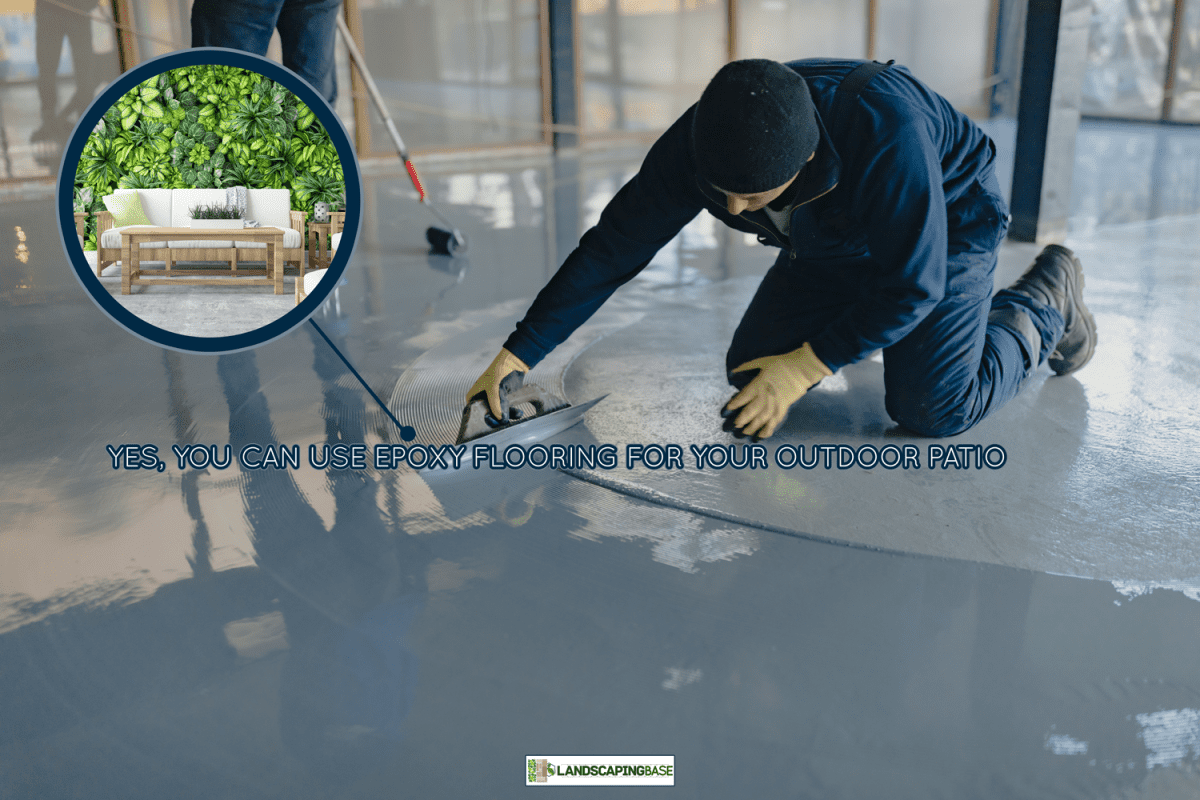
Can you use epoxy on the outdoor patio?
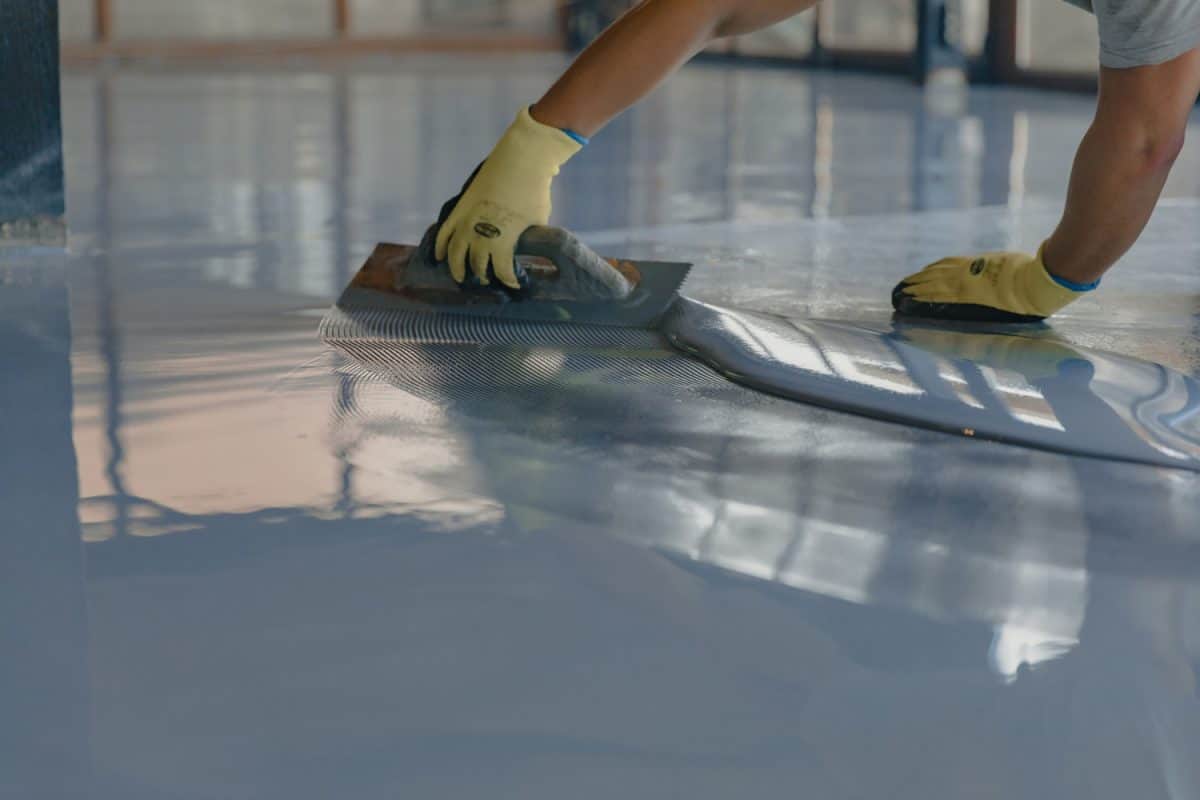
The outdoor patio is used for different purposes. It can be used as an entertaining area for friends and relatives or an extension of your living space where you can eat and relax while enjoying the view and gentle breeze of the outdoors.
Of course, you would want your patio floors to be comfortable, stylish, and also, durable.
But unlike the floors in your interior rooms, this part of the house is subject to different environmental conditions especially if it doesn't have a roof over it. It is exposed to harsh UV rays, intense heat, rain, and snow.
You have to consider these things when choosing a flooring solution for this area to ensure that your outdoor patio is not just pleasing to look at but more importantly, it is safe to use at all times and can withstand changing seasons.
If you're having doubts about epoxy flooring, it is understandable. Some years ago, there was this notion that it couldn't be used for outdoor settings because it wouldn't stand up well to UV light. That's why they were mainly used in parts of the house that sunlight couldn't reach.
In other words, application for epoxy flooring used to be very limited. But that has changed now thanks to advancements in flooring solutions technology. Manufacturers have found a way to enhance its resistance against UV rays and other environmental conditions.
And now, epoxy floors are quickly becoming popular for outdoor purposes. It can be used for your outdoor patio, pool deck, driveway, sidewalk, porch, and any outdoor application.
What is epoxy flooring?
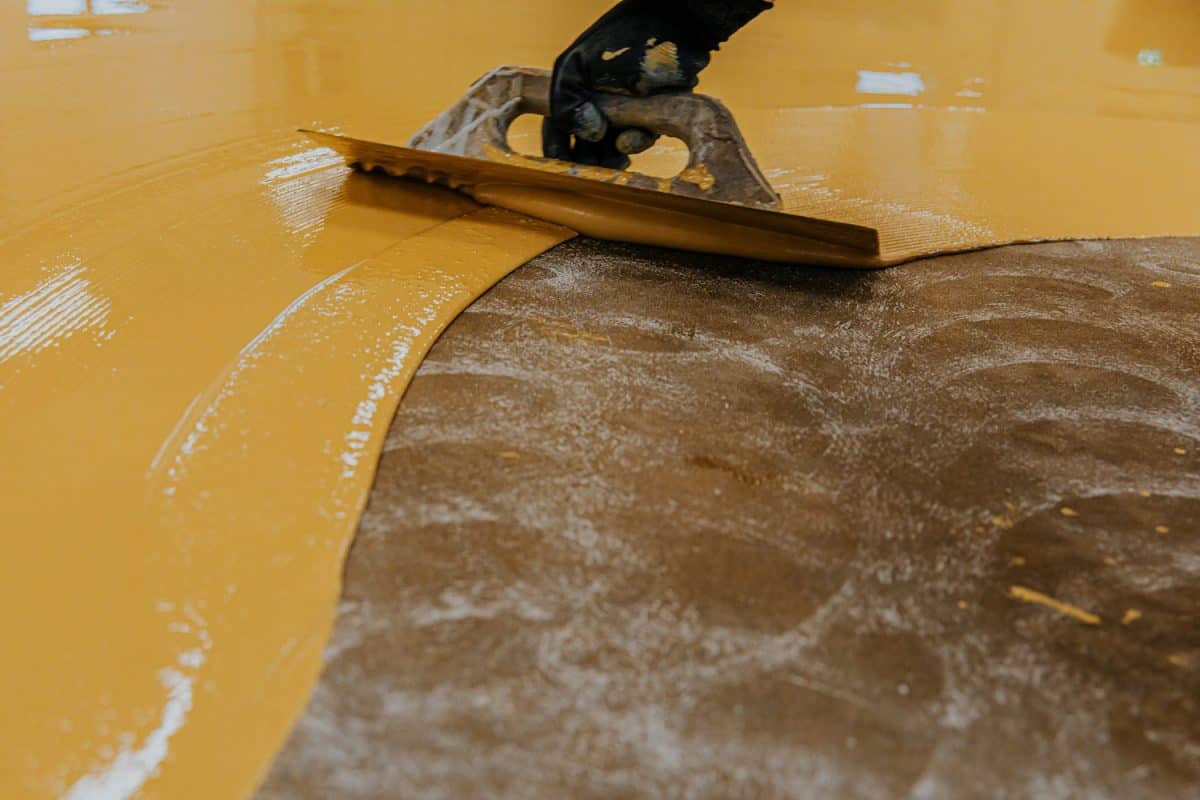
Epoxy flooring is resinous flooring over a particular substrate, usually concrete. The flooring itself is made up of polymer resins and hardeners. When mixed, they bond with each other and glue themselves to the substrate. They form a stiff and durable plastic layer on top.
Epoxy flooring is oftentimes confused with epoxy coating. The main difference between the two is the depth of the epoxy itself. It should be at least 2 mm thick for it to be considered flooring. Otherwise, it's just an epoxy coating.
The depth of epoxy allows it to provide multiple layers of protection on the substrate. This is why they say that epoxy floors are one of the most resilient and long-lasting flooring solutions that you can use.
Different Types of Epoxy Floors
There are different types of epoxy floors and we'll give you a quick rundown of each.
- Self-Leveling Epoxy Floors—These are available in different colors and provide a shiny and seamless look over concrete surfaces.
- Epoxy Mortar Floors—These are made up of solid epoxy mixed with quartz sand. Their outstanding qualities are extreme durability and chemical resistance.
- Quartz-Filled Epoxy Floors—They contain high-quality polymers and grains of quartz. They are very decorative in essence and have anti-slip properties for added safety.
- Anti-Static Epoxy Floors—These are also called electro-static charge resistant floors since they have conductive properties that can absorb static electricity and help prevent fire.
- Epoxy Flake Floors—They contain colored flakes that give the floor a vibrant look. They also provide a rougher texture for better foot grip.
Among these, the best options that you can use for your outdoor patio are self-leveling epoxy floors, quartz-filled epoxy floors, and epoxy flake floors.
But before you decide on your outdoor patio flooring, you need to know the pros and cons of using epoxy floors. This will help you come up with an informed decision so that you know what you're getting into and can manage your expectations.
What are the advantages of epoxy flooring?
Epoxy floors are gaining popularity in the market for a good reason. They offer many benefits for you to enjoy:
- Versatility—Epoxy floors can be used both for indoor and outdoor purposes. If you want a seamless design for your interior and exterior floors, you can opt for this material.
- Durability—The polymer resins and hardeners in epoxy form a durable layer of flooring over the substrate. It can resist UV rays, intense heat, and freezing temperatures.
- Safety—Epoxy has been mixed with certain additives to enhance its safety features such as slip resistance, and extra protection from chemicals, static electricity, and fire.
- Aesthetics—Epoxy floors come in different hues, textures, and designs to suit your preference. You can also customize its look to match the rest of your outdoor patio. It all depends on the technique that you will use to come up with its overall look.
- Maintenance—These floors are easy to maintain. The dirt and spills are easy to clean. You can just mop or vacuum the floor and it would be back to being dirt-free.
What are the disadvantages of epoxy flooring?
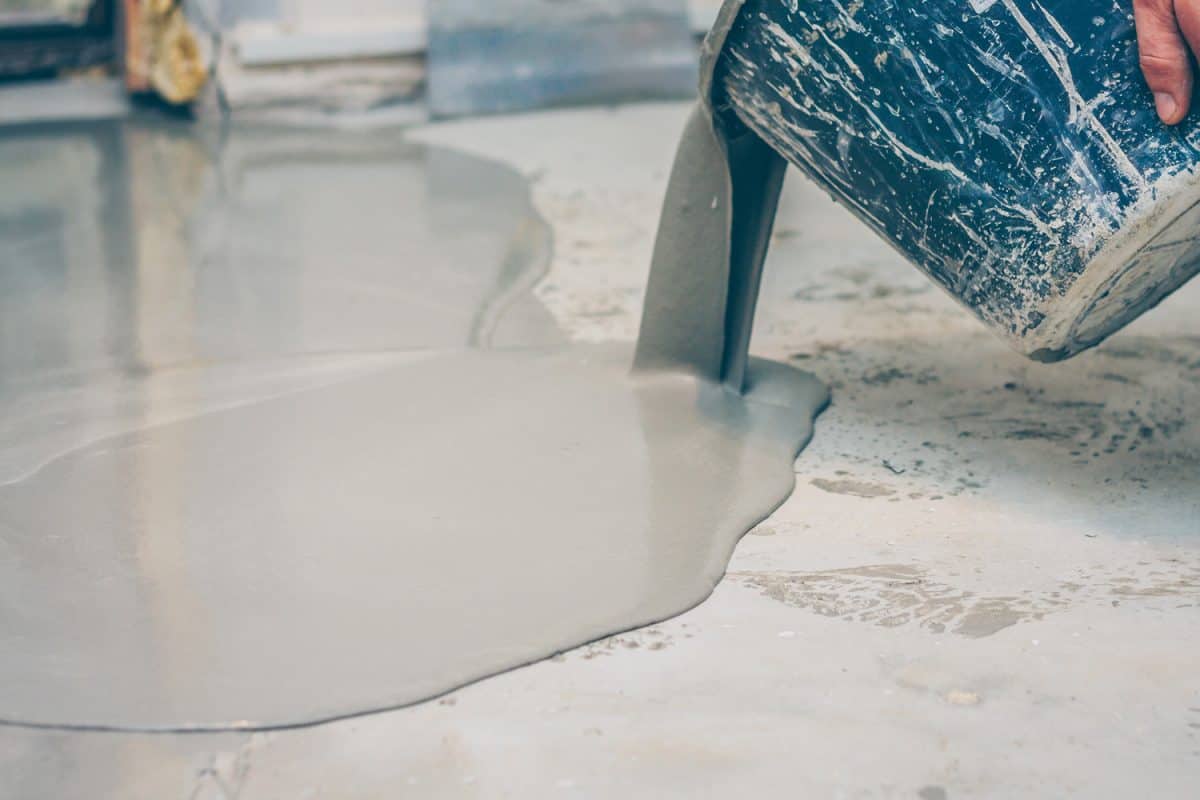
While epoxy floors offer many advantages, there are a couple of things that you need to be aware of when you use this material.
Installation
Installation of epoxy flooring takes time. First of all, you need a foundation or substrate. If you choose concrete, you have to wait until it is fully dry before you apply the epoxy treatment. Then, you have to wait for the epoxy to dry and cure again before you can use your outdoor patio.
This is a labor-intensive process and is best left to the able hands of the professionals. Sometimes other additives are required to enhance the safety features of the flooring system. Prepare yourself for the labor costs aside from the materials.
Repair Costs
Like concrete, epoxy floors come as a whole slab. When there's damage in one portion, you have to replace the entire floor. It would be like spending for the installation again.
These are the benefits and drawbacks of using epoxy floors that we want you to think about before deciding if you would go for epoxy floors on your outdoor patio. If you feel that the advantages far outweigh the disadvantages, then you can be confident with the choice that you're going to make.
How long does epoxy floor last?
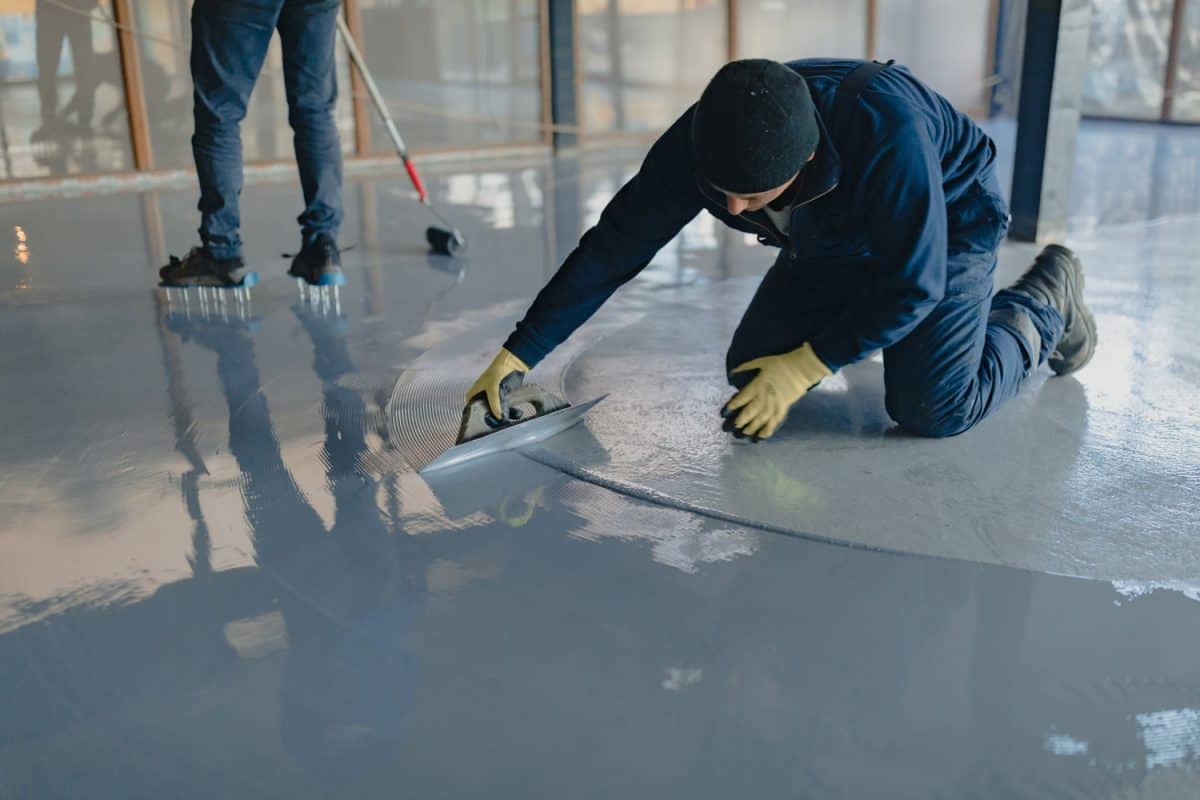
We keep saying that epoxy floors are durable but how long is their expected lifespan? This will help you manage your expectations especially since repairs would mean installing new floors all over again.
With proper care and maintenance, the life expectancy of epoxy floors in an outdoor patio is around 10 years.
But when used in heavy traffic outdoors spaces, note that regular epoxy floors would only last for about 2 to 3 years so you might want to reconsider your flooring options for your driveway or garage.
It is important to have a professional company install the epoxy floors for you so that you can be assured of the quality of the outcome.
For its maintenance, make sure that you clean it regularly and use only a mild scrubber to maintain its shiny appearance. Spot clean as soon as possible. You can also reapply the epoxy coat as needed.
Final Thoughts
Epoxy floors are a good option for your outdoor patio. They would enhance the look of this exterior portion of your house with their great designs, texture, and colors. Best of all, they are durable and safe to use which means you get value for your investment in this flooring option.

![A man using a portable vacuum to collect dead leaves, Will A Leaf Vacuum Pick Up Mulch? [Can It Remove Leaves From Mulch?]](https://landscapingbase.com/wp-content/uploads/2022/09/Man-using-a-portable-vacuum-to-collect-dead-leaves-600x400.jpg)

